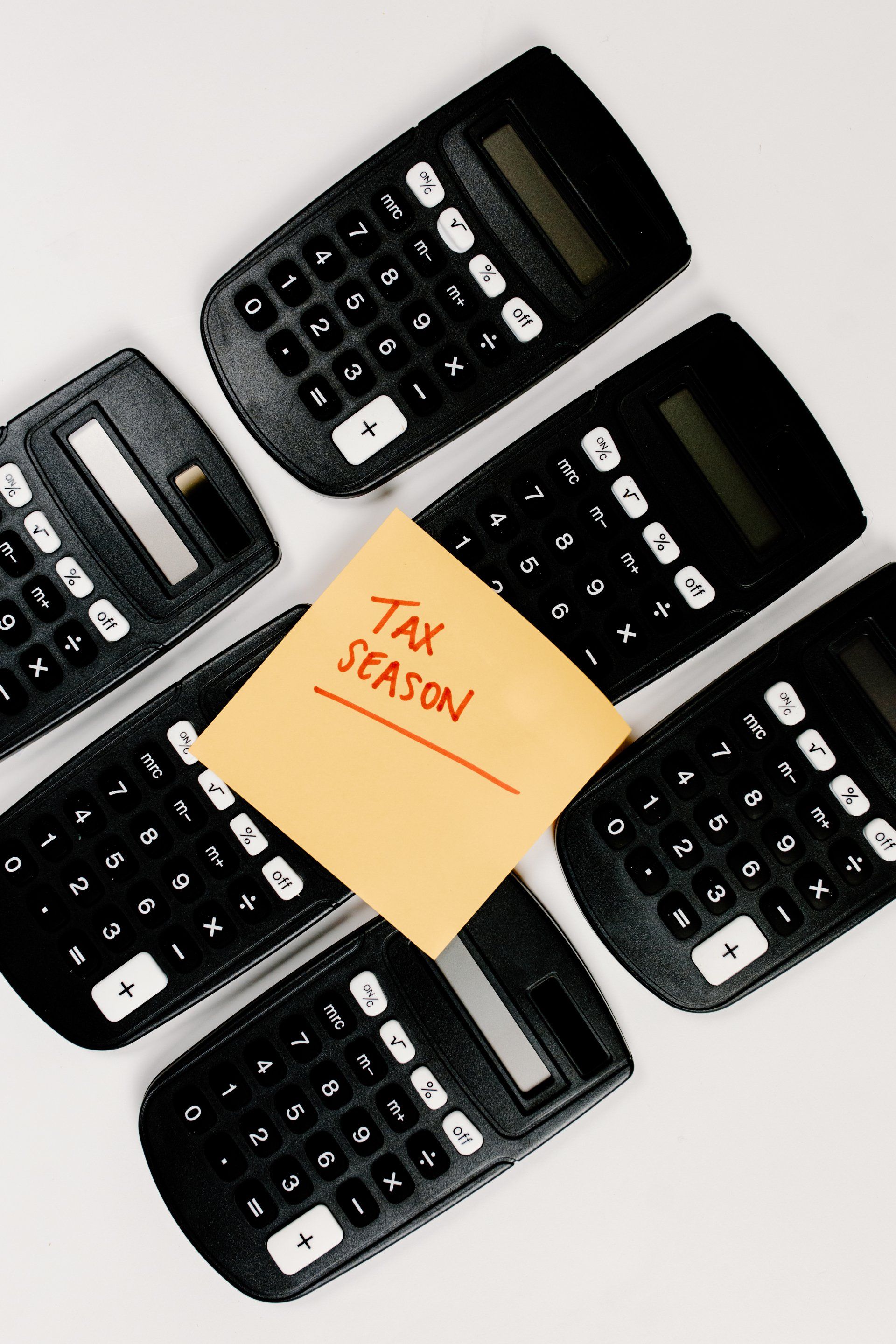BLOG

by Sean Rustrick
•
26 Apr, 2024
You’re going on a business trip and bringing your family along so they can holiday at the same time. Can you claim expenses through your company and are there any tax considerations? The short answer is ‘yes’, the company can reimburse the cost of the trip for everyone, but it may not be tax efficient to do so. Taxi Fares - If the fare to and from the airport is the same regardless of how many people are in the taxi, then it can be included as a corporation tax (CT) deductible expense without further tax or NI issues. If the fare is per passenger, it can still be tax deductible but there will be income tax and NI charges for the additional fare charged for the family. If the company pays the fares directly it is taxable as a benefit in kind. If the employee pays the fare and the company reimburses them, PAYE tax and NI will be applied to the reimbursement. You can avoid the income tax and NI charges for the family if the travel expenses are recorded as a personal expense rather than including it in the firm’s profit and loss account. You can debit it to the directors' loan account (DLA)! Flights - CT, income tax and NI rules apply just like the taxi fare. Hotel and Living expenses - Once again, the same tax rules apply. If they can be specifically attributed to each person then the costs are deductible for CT purposes for the employee and the family can avoid tax and NI if it is recorded as a personal expense. If there’s no extra cost for a family member/spouse or person accompanying you on a business trip, the whole cost is deductible for CT purposes and there are no other tax/NI charges to consider!

by Sean Rustrick
•
24 Apr, 2024
In the Spring 2024 budget it was announced that the furnished holiday lettings (FHL) tax regime will be abolished. This is to remove the tax advantage for landlords who let short term furnished holiday properties (compared to those who let out residential properties to long term tenants). Those operating furnished holiday lets as part of their business will be significantly impacted. Whilst no legislation has be published yet, we can expect that by removing the FHL tax regime: Business asset disposal relief (BADR) (allowing the sale of a qualified property to be taxed at 10% rather than 28%) will no longer be available so capital gains tax (CGT) will be payable at a higher tax rate from 6 th April 2025. Residential CGT will fall to 24% from 28% from 6 th April 2024 for higher rate taxpayers. Business asset rollover relief (gains made on the sale of an FHL property can be deferred if the proceeds are reinvested in another asset) will be abolished from 6 th April 2025. Gift hold-over relief (allowing a gain made on gifting an FHL property to be held over will- currently, a property which has been used as qualifying FHL throughout ownership can be gifted with no CGT payable) will no longer be available from 6 th April 2025. The capital allowances given to FHLs owners for fixtures and furniture may not be available. There has been a suggested “brightline” test to provide tax relief where property letting subject to income tax would qualify as trade. Factors such as; minimum number of properties, no personal use of let and letting on a short-term basis would be considered. If you own FHL you may wish to consider selling or gifting FHL property before the rules are abolished in April 2025. You can also join other significant businesses in lobbying for the “brightline test”. Please get in touch with us if you want to get some advice on what to do if you own an FHL. The withdrawal of CGT reliefs will likely result in higher tax liabilities in the future so it will be key to plan for this over the next 12 months- we can start helping you today!

by Sean Rustrick
•
23 Apr, 2024
The current capital gains tax (CGT) exemption is going to be reduced from £6,000 to £3,000 from the start of the new tax year on 6th April 2024. If you don’t use the current year’s exemption, then it will be lost forever! To make use of any unused part of your annual CGT exemption, first identify assets on which you would make a capital gain if you sold them (shares, currencies, crypto-assets, antiques etc). A limited exemption known as the chattels exemption applies to gains made from the sale/transfer of physical assets such as furniture, jewellery etc. This must be knocked off any non-exempt gains on chattels before your annual exemption can apply to them! After identifying the assets that would produce gains if sold, you must decide which to sell to make sure you use your annual exemption. Take account of any losses made from the sale/transfer of assets in the current tax year. This must be deducted from your gains before the annual exemption is applied. Selling shares that have increased in value and buying them back reduces long-term taxable gain as and when the shares (or other assets) are sold permanently. Reducing a CGT bill can be fiddly, and many exemptions will apply. Give us a call on 01622 738165 today to see what would be most beneficial for you.

by Sean Rustrick
•
18 Apr, 2024
You have been looking after a trust for your children for years, but now is the time to wind it up (distribute assets/money to beneficiaries). How can you make this the most tax efficient it can be? Most trusts must be assessed for IHT (inheritance tax) every 10 years. IHT is payable on the value of trust funds if they exceed £325,000 for 2023/24 (this is the nil rate band). You can’t avoid this 10-year charge by winding up the trust before the 10 years because it accrues every three months (quarter) so there will always be a proportionate charge for each quarter (assuming the funds exceed the nil rate band) since the last tax charge (this is called an exit charge). If you wind up a trust within the three months after a ten-year charge, there’s no exit charge BUT it leads to a capital gains tax (CGT) trap! CGT applies to assets such as shares, units and property which are passed from trusts to beneficiaries. When you wind up a trust, the transfer of assets is counted as if the assets had been sold for their market value (MV). If the trust acquired the assets for less than the MV, the difference is taxable. When CGT is calculated, trusts can knock their CGT exemption (£3,000 for 2023/24 and £1,500 for 2024/25) off the gains to reduce the amount on which tax is payable. CGT can be deferred if the trustees and beneficiaries make a “holdover election”. This means that the gain only becomes taxable when the beneficiaries sell/transfer the property. A “holdover election” is only allowed if the transfer of assets is chargeable to inheritance tax (there doesn’t have to be inheritance tax payable- this happens if the transfer value is below the nil rate band). In addition, it isn’t allowed if the assets are transferred from a trust within three months of an inheritance tax 10-year charge (because the transfer isn’t chargeable to inheritance tax!). To avoid this, just make sure that you allow three months from the 10-year charge to elapse before making any transfer! If you want to talk things through with one of the team, just give us a call on 01622 738165 and we can help you today!

by Sean Rustrick
•
11 Apr, 2024
Do you need extra finance for your new company? Are you interested in outside investors but want a tax incentive scheme to sweeten the deal? Traditionally you would borrow money to help finance your company but more recently you would bring in outside investors who would provide cash in return for shares. Of course, this would create many pros and cons for both you and the investors, but now there has been the introduction of the seed enterprise investment scheme (SEIS) that is helping cancel out those cons! The SEIS is available for new or recent start-ups. It allows you to use tax incentives that will attract investors. The tax incentives are: - Income tax relief equal to 50% for investments of up to £200,000 - Exemption from any capital gain tax growth in value of the SEIS shares - Capital gains tax reinvestment relief (an exemption of 50% of any capital gain which occurs in the same year as the income tax incentive) - Shares can qualify for inheritance tax business property relief The maximum total SEIS investment your company can receive is £250,000 but the income tax and reinvestment relief can be claimed by the investor for the tax year of the investment, or they can choose for it to be the previous year! To offer SEIS shares to potential investors as long as you follow these conditions: - The company must be unquoted at the time you issue the shares - Immediately before the share issue there must not be gross assets in excess of £350,000 - The company must have a permanent establishment in the UK for the following 3 years and carry on a qualifying trade If you meet these conditions, then you can request that HMRC provides an “advance assurance” to prove that your company is entitled to issue shares that qualify for the SEIS tax breaks. You can then give this to prospective investors to encourage their investment! Make sure your investors understand that after you have issued shares, they must wait until you send them a SEIS 3 certificate (from HMRC) to then claim the tax breaks. This will only be after 4 months of trading and at least 70% of the SEIS investment has been received! Some conditions must continue to be met for a further 3 years to qualify for SEIS- if they aren’t then the tax relief will be lost. Get in contact on 01622 738165 to find out exactly what they are and how we can help ensure you are maximising the potential of your new business!

by Sean Rustrick
•
20 Mar, 2024
HMRC has identified 4,000 traders in the hot food and catering sector that may be under-recording sales. It is important to regularly check the credibility of your returns by making a comparison to the same quarter in the previous two or three years before you submit your return online to HMRC. Although they are currently targeting VAT underpayments, under-recording of sales will also mean that your business has underpaid income tax or corporation tax (if your business is incorporated). If HMRC thinks that your business has underpaid tax (with deliberate underpayments for the past 20 years) it will issue a “best judgement” assessment for the last four years and interest and penalties may be charged. If you trade in the catering sector, get in contact with us at Rustrick Accountants or contact your agent to see if they have received a letter from HMRC. It is down to your agent to contact HMRC to get a list of the 4,000 taxpayers they are targeting, and you and your agent are responsible for identifying if VAT has been underpaid and reporting it. What should you do? If you account for VAT on a cash (rather than invoice) basis, ensure your takings records and audit trails are robust. Make sure your staff are properly trained to know when sales are standard or zero-rated. Ensure all delivery sales are being properly recorded as a part of your takings and take positive action now just in case HMRC comes knocking! Of course, if the search for under-recordings of sales in the catering sector proves fruitful HMRC will extend its search to other sectors- so be prepared! Give us a call if you want to chat more about this topic on 01622 738165 or pop into the office today!

by Sean Rustrick
•
20 Mar, 2024
HMRC is stepping up investigations into crypto-assets. In 2022, nearly 5 million people owned crypto-assets such as Bitcoin and Ethereum, consequently HMRC started a campaign in late 2023 to track down who has bought and sold crypto-assets over the past few years. Buying and owning crypto-assets does not cause you to be liable for tax- even if their value has grown substantially. HMRC will only be interested if you have received income and made gains by selling assets (and even then, you might not have to pay tax). If you have bought and sold crypto-assets infrequently, any gains (after knocking off any losses) you have made will fall within the scope of capital gains tax (CGT). However, if your gains for a tax year from the sale of all assets (not just crypto-assets) were less than the CGT annual exemption (£12,300 for 2022/23) there’s no tax to pay and no requirement to report the transaction. If you frequently trade in crypto-assets HMRC might consider that you are liable to income tax on any gains that you make. The CGT exemption won’t apply and if you haven’t declared your gains you might have tax to pay! When HMRC starts an enquiry, you’ll receive a letter stating the legislation it’s using as authority. They will ask for records of your cryptocurrency transactions for the previous tax years. You will have to provide information and documents within 30 days, if you don’t think you will be able to comply you must get in contact with HMRC without delay.

by Sean Rustrick
•
20 Mar, 2024
HMRC’s advisory fuel rates (AFRs) can be used to prevent a taxable benefit in kind for fuel being triggered if an employer provides a car to an employee/director. AFRs: Employees can use AFRs to work out how much to reimburse their employer for fuel, if the car was used for a private journey. Employers can also use AFRs to calculate how much to reimburse the cost of fuel paid for by employees for business journeys. From 1 st March 2024 these are the new AFR rates (prices in brackets are the previous rates):


